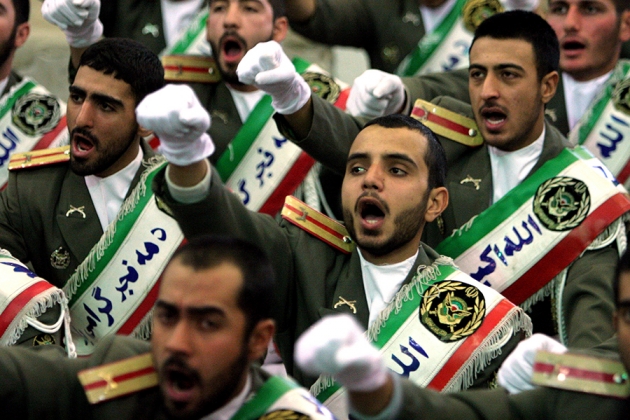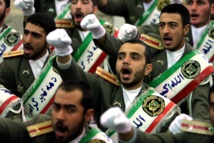And yet new questions arise on the lack of hard evidence of the group’s defeat, in the form of corpses, weapons, camps, and detainees. This ambiguity has allowed some, lacking sufficient evidence, to accuse several parties of supporting the Islamic State. The group’s convoys— including oil convoys— openly roam the desert in Syria and Iraq. This comes amid the group’s swift return to areas where it was supposedly defeated; along with deals struck that allow the group to move into to other areas under the protection of its enemies.
Over the past few months, there has been much finger pointing in Iraq and Syria regarding deals made between the Islamic State and its supposed rivals, including Iran, Hezbollah, the Syrian regime, the Syrian Democratic Forces (SDF), Turkey, and the United States. Some of those deals were announced to the public, such as the agreement by Hezbollah and the Assad regime with the Islamic State. The latest of these was reportedly initiated by the Syrian army in exchange for the release of captured Syrian soldiers. Other deals were confidential, such as the one with the SDF in Raqqa, and another with Turkey in Iraq in exchange for the release of Turkish soldiers. There have also been a number of deals between the Popular Mobilization Units (PMU), of which Iran pulls the strings, and the Islamic State in Iraq, supervised by Qassem Suleimani and Iran’s Revolutionary Guard.
It is also known that these agreements have been going on for quite some time. There has been much speculation on this issue since June 2014, when the Islamic State took over large swathes of territory in northern and central Iraq, reaching the outskirts of Baghdad after the dramatic collapse of the Iraqi army under the command of then-Prime Minister Nouri al-Maliki. The Shia governing troika responded by rushing to form the Iraqi Popular Mobilization Units (PMUs) based on a fatwa by Ayatollah Ali al-Sistani. The new unit consisted of nearly seventy armed militias, more than half of which were confirmed by Iraqi experts to be funded, armed, and trained by Sistani. They followed his orders, and the Iraqi Prime Minister had no power over them. These militias fought most of the battles against the Islamic State in Iraq then Syria, led by Qods Force commander Qassem Suleimani.
Terrorism and war experts agree that the Islamic State’s human and military capabilities would never have allowed it to invade nearly half of Iraq’s territory if it weren’t for some help from others that at least helped pave the way. Indeed, subsequent interrogations found senior Iraqi commanders guilty of neglect when fighting the group. It is also known that the Islamic State’s invasions coincided with mass protests in western Iraq against Maliki’s sectarian government, as well as protests in the south against Shia political blocs following the government’s failure to provide basic services to citizens with the emergence of slogans wishing for the return of Saddam Hussein’s former Baath regime. The PMUs could not have existed without the Islamic State.
Perhaps those deals are part of the answer to questions about the lack of evidence of battles where the Islamic State is declared defeated. Images of destruction in cities are common in footage aired by media outlets showing liberated areas, but no image of a fighter’s corpse or so much as a broken rifle or damaged piece of equipment surfaces until days later in nearby areas. Two items stand out about those deals: First, all fighters in Syria claim they are combating the Islamic State, which is under military pressure from several offensives by the United States, Russia, and their allies, all in the midst of a media war over getting the scoop on the death of Abu Bakr al-Baghdadi, who was reported killed or detained multiple times in Syria and Iraq. Second, with the exception of reports on a deal between the SDF and the Islamic State (which was denied by the SDF and called “allegations and lies aimed at hurting the SDF’s reputation and boosting the morale of terrorists”) the remaining deals were made by groups supported by Iran, especially the Syrian army and Hezbollah.
The deals made by these groups on the battle fields of Syria and Iraq have been a constant Iranian strategy since the major deal with al-Qaeda in 2001 following the Afghanistan war, when Iran received al-Qaeda’s leader and officials, and later in Iraq when Iran armed al-Qaeda in exchange for not targeting holy shrines. Al-Qaeda has given Iran the reasons to form the Popular Mobilization Units and control Iraq, and has changed the Syrian revolution from a popular uprising against oppression and corruption to a confrontation between the Syrian regime and terrorism. It has become clear now that Iranian-aligned proxies are tacitly assisting Islamic State invasions and providing it with safe havens to ensure it remains a source of threat, because stability in Iraq or Syria would leave resources open to confront Iran and the underlying reasons for its presence.
In conclusion, Iranian proxies’ deals with the Islamic State on the battlefields of Syria and Iraq raise serious questions about the viability of anti-terror strategies amid deep doubts on the possibility of achieving tangible results. They also indicate the possibility of a continued Islamic State and al-Qaeda presence in light of their relationship with Iran. Al-Qaeda is likely to open new battle fronts in other areas outside Syria and Iraq, to maintain terrorism as a global concern.
-----------
The Washington Institute
-----------
It is also known that these agreements have been going on for quite some time. There has been much speculation on this issue since June 2014, when the Islamic State took over large swathes of territory in northern and central Iraq, reaching the outskirts of Baghdad after the dramatic collapse of the Iraqi army under the command of then-Prime Minister Nouri al-Maliki. The Shia governing troika responded by rushing to form the Iraqi Popular Mobilization Units (PMUs) based on a fatwa by Ayatollah Ali al-Sistani. The new unit consisted of nearly seventy armed militias, more than half of which were confirmed by Iraqi experts to be funded, armed, and trained by Sistani. They followed his orders, and the Iraqi Prime Minister had no power over them. These militias fought most of the battles against the Islamic State in Iraq then Syria, led by Qods Force commander Qassem Suleimani.
Terrorism and war experts agree that the Islamic State’s human and military capabilities would never have allowed it to invade nearly half of Iraq’s territory if it weren’t for some help from others that at least helped pave the way. Indeed, subsequent interrogations found senior Iraqi commanders guilty of neglect when fighting the group. It is also known that the Islamic State’s invasions coincided with mass protests in western Iraq against Maliki’s sectarian government, as well as protests in the south against Shia political blocs following the government’s failure to provide basic services to citizens with the emergence of slogans wishing for the return of Saddam Hussein’s former Baath regime. The PMUs could not have existed without the Islamic State.
Perhaps those deals are part of the answer to questions about the lack of evidence of battles where the Islamic State is declared defeated. Images of destruction in cities are common in footage aired by media outlets showing liberated areas, but no image of a fighter’s corpse or so much as a broken rifle or damaged piece of equipment surfaces until days later in nearby areas. Two items stand out about those deals: First, all fighters in Syria claim they are combating the Islamic State, which is under military pressure from several offensives by the United States, Russia, and their allies, all in the midst of a media war over getting the scoop on the death of Abu Bakr al-Baghdadi, who was reported killed or detained multiple times in Syria and Iraq. Second, with the exception of reports on a deal between the SDF and the Islamic State (which was denied by the SDF and called “allegations and lies aimed at hurting the SDF’s reputation and boosting the morale of terrorists”) the remaining deals were made by groups supported by Iran, especially the Syrian army and Hezbollah.
The deals made by these groups on the battle fields of Syria and Iraq have been a constant Iranian strategy since the major deal with al-Qaeda in 2001 following the Afghanistan war, when Iran received al-Qaeda’s leader and officials, and later in Iraq when Iran armed al-Qaeda in exchange for not targeting holy shrines. Al-Qaeda has given Iran the reasons to form the Popular Mobilization Units and control Iraq, and has changed the Syrian revolution from a popular uprising against oppression and corruption to a confrontation between the Syrian regime and terrorism. It has become clear now that Iranian-aligned proxies are tacitly assisting Islamic State invasions and providing it with safe havens to ensure it remains a source of threat, because stability in Iraq or Syria would leave resources open to confront Iran and the underlying reasons for its presence.
In conclusion, Iranian proxies’ deals with the Islamic State on the battlefields of Syria and Iraq raise serious questions about the viability of anti-terror strategies amid deep doubts on the possibility of achieving tangible results. They also indicate the possibility of a continued Islamic State and al-Qaeda presence in light of their relationship with Iran. Al-Qaeda is likely to open new battle fronts in other areas outside Syria and Iraq, to maintain terrorism as a global concern.
-----------
The Washington Institute
-----------









 Home
Home Politics
Politics











